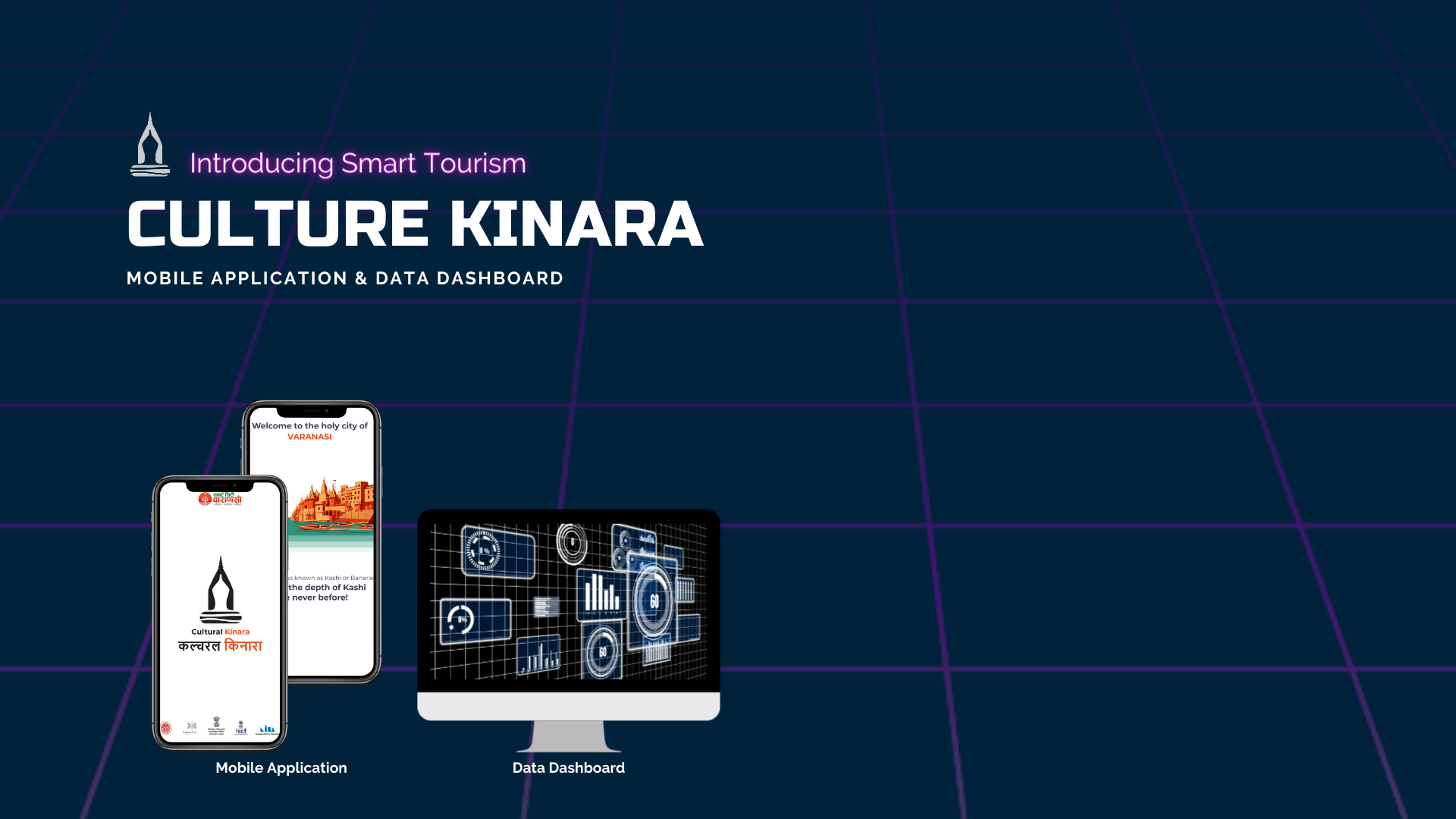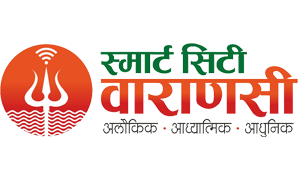

Culture Kinara is a smart tourist application that will provide trilateral support to the local tourist economy, improve the existing tourism experience and provide a data-driven decision making support system for the administrators and investors of Varanasi smart city. The product is in the form of a digital tourist application which consists of five key sections: Explore, Read, Travel, Watch & Chat. That's how one indulges all their senses in experiencing the essence of a tourist destination. The application as used will generate tourist data displayed on a tourism dashboard, which the Urban Local Body (ULB) and concerned departments will have access to. This will provide them with unprecedented tourist detail to enable data-driven decisions in the tourism sector of the city. In addition to this, the application comes with fully loaded features which a tourist may require throughout their trip. This product is a minimum viable product to establish a Heritage & Tourism management system in a city.






20+ features included for tourists and locals such as a trip planner, currency converter etc
Provides a digital cultural map of the city based on contributions by the citizens and additions by the internal team
Gives users the ability to evaluate and add businesses, places and events in the application pertaining to the city
Collects user data and visualizes them on the tourism dashboard to generate analytics
Manage the vendors shaping the tourism experience of the city through smart controls
Easy to use application and dashboard with simple UI and UX

Culture Kinara shall greatly help in providing authentic information to the visitors thronging Varanasi city having a vast and extensive tourism profile. This smart pocket guide with a range of features shall also collate baseline data for administrative and statistical purposes.
“We are very hopeful that Culture Kinara will bring a boost in our daily local businesses and guide tourists and locals to experience the real Kashi”
“As a tourist I have always wanted a platform with consolidated and authentic tourist information about the places to visit in a city”
“The Trip Planner and the Cultural Map of Varanasi is my favorite, as a Banarasi I feel proud that Culture Kinara is representing Varanasi in it’s true and authentic sense”
Tourism can play a major role in reviving the economy hit by COVID-19, and an opportunity as post-COVID will be a new normal with a trepidation of individuals not leaving their native places. Tourism, which is the hardest hit industry due to the coronavirus pandemic, needs to be resilient enough to play a major role in reviving the economy.
To strategize on how to improve tourism, we identified five primary issues that need to be addressed and work on, which are:
This project proposes a digital tourist application cum dashboard integrated with smart features such as a city-specific curated digital cultural map, AI-based itinerary planner, a chat section for tourists and locals and many more. Integrated with a ‘Rewards and Penalties Programme’ to make the application engaging for both tourists/locals and vendors. The dashboard will reflect all the crowdsourced tourist data collected using the application for the ULB which in return can make data-driven decisions to further develop the tourism sector of their city.
The team carried out consultation right from the conceptualization stage of the project till its implementation from the below mentioned officials. As identified relevant for the project to be piloted in collaboration with Varanasi Smart City (VSCL).
|
S.no |
Name |
Designation |
| 1. | Mr Gaurang Rathi IAS | CEO(VSCL) Municipal Commissioner (VNN) |
| 2 | Mr Abhinav Kaushal | Architect, Nodal Officer (VSCL) |
| 3 | Dr Vasudevan | General Manager (VSCL) |
| 4 | Mr Shakambhari Nandan Sonthalia | Public Relations Officer (VSCL) |
| 5 | Dr Santosh Kumar Tripathi | GIS Manager (VSCL) |
| 6 | Mr Utkarsh Singh | Intern (VSCL) |
| 7 | Mr Sahitya Kashyap | Intern (VSCL) |
| 8 | Mr Prince Dwivedi | Intern (VSCL) |
| 9 | Mr Vishnu Nair | Technical Head (Shapoorji Pallonji) |
| 11 | Mr Abhimanyu Tripathi | Technical Head (Smart Kashi Application) |
| 12 | Mr Ashish Ouija | Zonal Officer (VNN) |
| 13 | Mr Abdulah | Asst. Director (Department of Handicrafts, UP) |
| 14 | Mr Vishal Verma | Handicrafts Promotion Officer (Department of Handicrafts, UP) |
| 15 | Mr Nitish Dhawan | Asst. Commissioner (Department of Handloom & Textile Industries, UP) |
| 16 | Mr Vikas Shroff | Asst. Director (Weavers Service Centre-Ministry of Textiles, UP) |
| 17 | Dr Yashwant Singh Rathore | Head (Department of Culture, UP) |
| 18 | Mr Atul Singh | Project Manager (Department of Culture, UP) |
| 19 | Mr Sarvesh | Regional Transport Officer, UP |
| 20 | Dr Subhash Chandra Yadav | Cultural Coordinator (UP State Archeology) |
| 21 | Mr Suresh Verma | Developer (Kashi Vishwanath Temple Application) |
| 22 | Mr Gopesh Singh | Manager (TFC Museum, Ministry of Textiles) |
| 23 | Mr Birendra Kumar | Asst. Manager (TFC Museum, Ministry of Textiles) |
| 24 | Mr Ajay Shrivastava | Curator (TFC Museum, Ministry of Textiles) |
| 25 | Mr Kirtiman Srivastav | Director (Department of Tourism, UP) |
| 26 | Mr Nitin | Tourism Officer (Department of Tourism, UP) |
| 27 | Ms Saveen | Designer (Cullman Creative) |
| 28 | Mr Nikhil | Digital Media Associate (Paperboat Productions) |
| 29 | Mr Utkarsh Singh | Digital Media Associate (Paperboat Productions) |
The team consulted historians and experts from Banaras Hindu University for verifying all the information to be used and displayed on the application for the users.
The product is developed by Shapoorji Pallonji & LAAYN Technologies Private Limited for the client - Varanasi Smart City Limited. The development stage of the project was divided into 2 phases considering the dense nature of the product.
For phase 2, the plan is to formalize the e-rickshaw system in Varanasi by augmenting the transportation nodes through the identification of major tourist spots and rerouting them to underrated/unexplored destinations in the city.
Skill training programs for guides will also be organized and inducting them into the usage of the application. The aim here is to authenticate and regulate the quality of tour guides. Further, more layers of tourism themes such as responsible, eco and accessible tourism will be added into the application to gauge a diversity of tourist attention.
In phase 1, the team had initiated the process of cultural mapping on-site which in phase 2 it would be digitized by the process of vendor onboarding section provided in the application. The aim is to structuralize the procedure of populating the application with an integration for sustainable upgradation of cultural data on the platform.
Using the same framework, an exercise to map all-inclusive public spaces in the city can be carried out. In addition, potential transportation routes can be mapped to achieve the last mile connectivity.The product can include the aspect of transactional facilities. This would increase the ease of business and benefit the economy of both locals and the ULB.